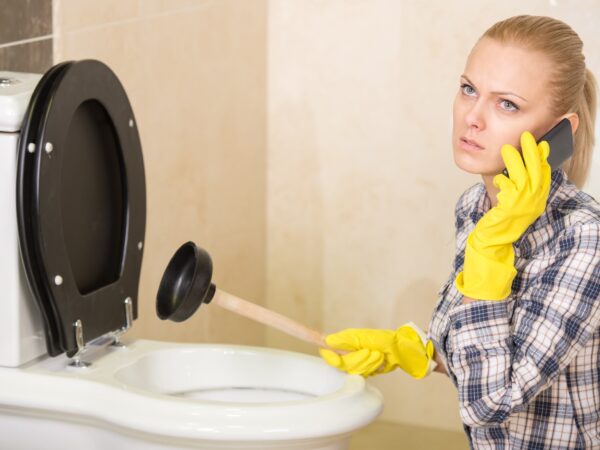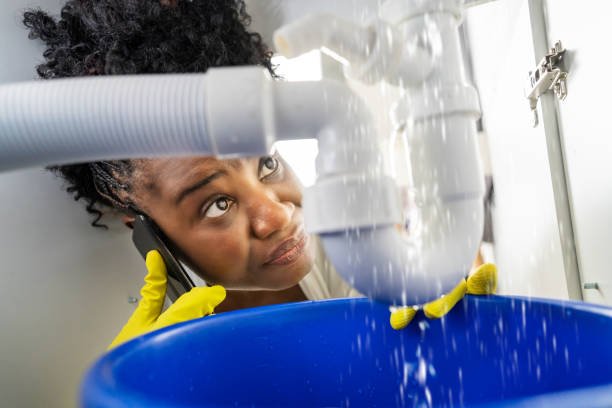Managing Emergency Plumbing Issues: Quick Solutions Until Expert Help Arrives
Managing Emergency Plumbing Issues: Quick Solutions Until Expert Help Arrives
Blog Article
On this page down the page you can get additional exceptional information and facts related to Expert Tips for Managing a Plumbing Emergency Until Help Arrives.

Plumbing emergency situations can strike at any time, causing anxiety and possible damage to your home. Whether it's a ruptured pipe, a clogged drain, or a dripping faucet, recognizing exactly how to manage the scenario until an expert plumbing technician shows up can save you from additional complications. This post supplies important emergency situation plumbing ideas to help you alleviate damages and restore control throughout a plumbing dilemma.
Turn Off the Water System
The first step in any kind of plumbing emergency situation is to turn off the water supply. For local issues, such as a dripping faucet or commode, shut off the shutoff near the fixture. When it comes to a major leak or ruptured pipeline, find your home's major water shut-off valve and transform it off right away. Recognizing the location of these valves ahead of time can save beneficial time during an emergency situation.
Address Small Leakages with Temporary Repairs
Tiny leaks can promptly end up being substantial troubles if left unattended. Make use of these short-term repairs until expert help arrives:
While these fixes aren't long-term, they can help decrease water loss and damage.
Unclog Drains Safely
A blocked drain can be a discouraging and untidy concern. Right here's just how to tackle it:
If these methods don't work, avoid using excessive force, as it may worsen the blockage.
Take Care Of Overflowing Toilets
An overruning commode can create immediate chaos. Right here's what you must do:
Shut down Your Water Heater
In specific emergency situations, such as a burst pipe, it's a good idea to shut down your water heater. This stops getting too hot or damage to the unit when water stops streaming. Shut off the power supply to the hot water heater (electrical or gas) and allow it cool to avoid potential risks.
Briefly Stop a Burst Pipeline
A ruptured pipeline can result in considerable water damages in mins. To mitigate the problem:
Call an expert plumber right away to address the issue permanently.
Manage Frozen Pipes Very Carefully
In colder environments, frozen pipelines are a common emergency situation. If you suspect an icy pipeline:
Avoid More Damage
Taking fast action to decrease damage can conserve you time and money in the future. Right here's exactly how:
. Have an Emergency Situation Plumbing Set
Prepare a basic plumbing emergency situation kit to handle minor issues successfully. Your package must consist of:
Having these tools available can make a considerable difference in your ability to manage emergencies.
Know When to Call an Expert.
While quick fixes can aid temporarily, particular pipes problems require immediate specialist focus. Call a plumbing professional if:.
Immediately speaking to an expert makes certain the concern is resolved appropriately and prevents further difficulties.
Conclusion.
Plumbing emergencies can be overwhelming, however with the appropriate expertise and devices, you can take care of the circumstance successfully up until assistance shows up. By turning off the supply of water, addressing tiny leakages, and utilizing temporary repairs, you can reduce damages and maintain your home safe. Remember, these pointers are temporary services; constantly speak with an accredited plumbing professional to deal with the root cause of the trouble. Prep work and fast thinking are your best allies in any plumbing emergency.
8 Helpful Tips for Managing Plumbing Emergencies at Home
If your plumbing system hasn’t failed once, wait for it because almost everyone has a story to tell. Sometimes, it could be simple emergencies such as a leaking pipe, a blocked cistern, or even a big burst pipe. In situations like this, you need to have some handy tips to save you some money and from possible damages.
Take care of minor issues early.
Sometimes, you could have avoided an emergency by taking proactive measures while it was still early. Some major plumbing emergencies can be a result of an ignored minor issue. We recommend that you have items like plumbing tapes and other related items. A plumbing tape can allow you to manage minor leaks before the plumber arrives.
Cut off the water supply.
This tip is essential in almost any type of leakage problem. For problems like minor leakages in the toilet or kitchen, turn off the supply that takes water to the affected pipes. If the leakage is a major pipe, you must shut off the supply valve to the entire building. This will help you avoid flooding your home and neighbors if you share a flat.
Know your plumbing system
Folks typically move into a new apartment without understanding the water supply around the building. This can prove disastrous if a water emergency arises and the plumber is far away. The previous tip will prove useless if you don’t practice this one. More importantly, know where your water shut-off valve is located – you’ll need that knowledge to prevent potential home floods.
Have some common handy tools
There are lots of plumbing emergencies that you can handle without hiring a plumber. That’s why you must keep some tools available always. Some tools that you can use to fix simple plumbing emergencies easily include plumbing tapes, screwdrivers, thread seal tapes, plungers, pliers, tape measures, and rubber gloves.
Insulate your pipes from cold
You’ll save yourself from many plumbing expenses if you protect your water pipes from the cold. This is because of the harmful effects that cold weather can have on your pipes. During winter, your pipes can burst from being overly expected to freezing temperatures. So, make sure insulators are there to keep the pipes working correctly.
Avoid practices that will clog your toilet.
Many people indulge in practices that can damage the plumbing system of the entire building. One of these is when they use their toilet to dispose-off garbage. They flush all kinds of things, such as paper towels, bandages, hairs, female sanitary products, etc., down the toilet. This will block your toilet in the long run, incurring unnecessary expenditures. Dump such waste in the trash instead.
Check your dials regularly.
Sometimes, there could be leakages in your home without noticing them in time. So, constantly monitor your water meter dial. If the dial is reading when there is nobody using water, this is an indicator that there is leaking. Check for leaks immediately. Call a plumber as soon as possible if you can’t find any.
https://www.constructionplacements.com/8-helpful-tips-for-managing-plumbing-emergencies-at-home/

I ran across that piece of writing about Plumbing Emergencies: Tips on What To Do Before when looking around the search engines. Do you know someone else who is involved in the topic? Why not share it. We enjoy reading our article about What to Do During a Plumbing Emergency.
Book Report this page